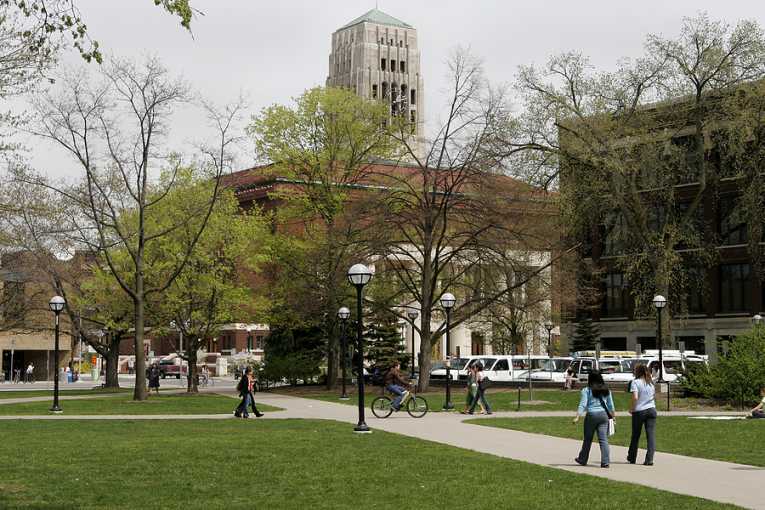The University of Michigan pledged this week to invest $14 million in a variety of green initiatives on campus. The funds are in addition to $64 million already invested in the construction of energy-efficient buildings.
The newly allocated money will go towards solar panel installation on some campus buildings, hybrid buses with greater energy efficiency and lower greenhouse gas emissions, and funding for student projects aimed at improving the university's environmental sustainability.
The university's commitment is also reflected in its hiring of new faculty involved in the area of sustainability and the creation of a new minor in sustainability.
The university has declared specific sustainability goals, to be achieved by 2025, including reducing its greenhouse gas emissions by 25% (equal to the removal of 42,000 cars from the road), shrinking the amount of landfill waste by 40%, improving water quality by reducing landscaping chemicals by 40%, and insuring that at least 20% of the food served on campus is locally grown.
Other examples of UM's commitment to a greener future include the installation of geothermal heating and cooling technology at the soon-to-open Weisfeld Family Golf Center on South Campus, and renewed support for a program that encourages faculty and staff to reduce waste, reuse, recycle, and save energy. That program has already resulted in an estimated $4 million in savings.
"The goal commitments are certainly important, but more impressive to me is the emerging culture shift on campus," said Donald Scavia, director of the Graham Institute and Special Counsel to the President on Sustainability. "I believe the high levels of focus, energy, and collaboration now in place throughout the university are the most significant steps in driving progress toward all of our sustainability goals - in education, research, and operations," Scavia said.










